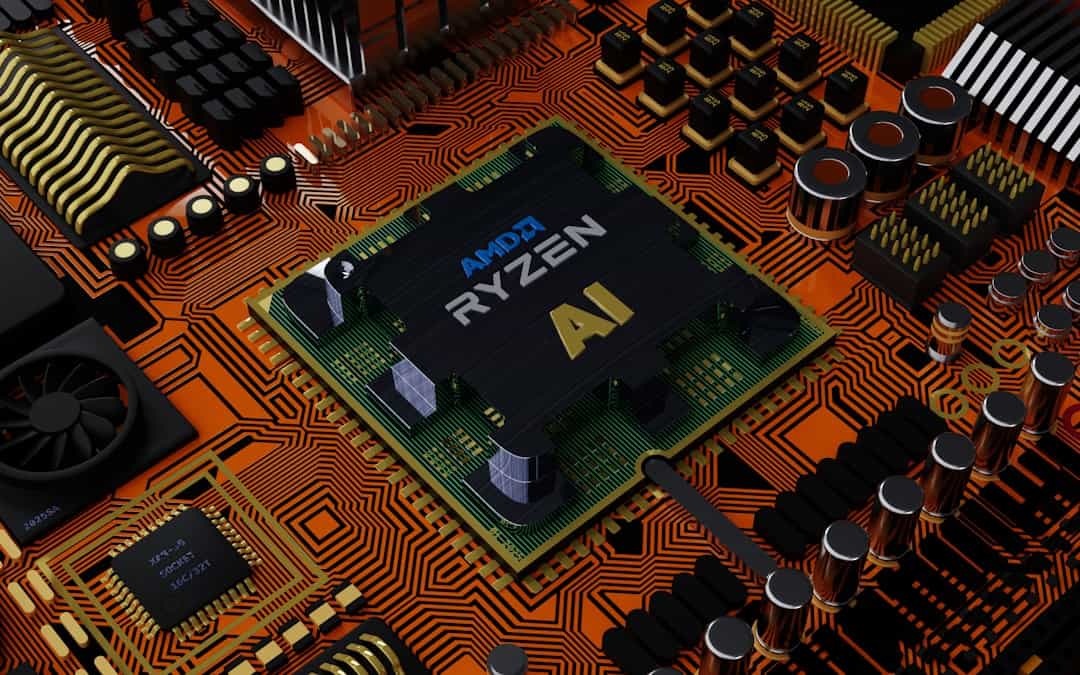In the rapidly evolving landscape of human resources, IBM Watson has emerged as a transformative force, reshaping how organizations manage their workforce. Launched in 2011, IBM Watson is an advanced artificial intelligence system that leverages machine learning, natural language processing, and data analytics to provide insights and solutions across various sectors. In the realm of HR, Watson’s capabilities are particularly noteworthy, as they enable companies to streamline processes, enhance decision-making, and ultimately foster a more engaged and productive workforce.
The integration of IBM Watson into HR practices signifies a paradigm shift from traditional methods to a more data-driven approach. By harnessing vast amounts of employee data, Watson can identify patterns and trends that may not be immediately apparent to human analysts. This allows HR professionals to make informed decisions based on empirical evidence rather than intuition alone.
As organizations increasingly recognize the value of data in driving business outcomes, the adoption of AI technologies like IBM Watson is becoming not just advantageous but essential for staying competitive in today’s fast-paced market.
Key Takeaways
- IBM Watson is a powerful AI tool that is revolutionizing HR by providing data-driven insights and automating repetitive tasks.
- AI-powered talent management with IBM Watson helps in identifying and developing top talent, improving employee engagement, and predicting future workforce needs.
- AI-driven recruitment with IBM Watson streamlines the hiring process by analyzing resumes, conducting pre-employment assessments, and identifying the best candidates.
- HR analytics with IBM Watson enables organizations to make informed decisions by analyzing large volumes of data related to employee performance, engagement, and retention.
- The benefits of using IBM Watson in HR include improved efficiency, better decision-making, enhanced employee experience, and cost savings.
- Challenges and considerations of implementing IBM Watson in HR include data privacy concerns, ethical use of AI, employee resistance, and the need for continuous training and upskilling.
- Case studies of successful implementation showcase how organizations have used IBM Watson to improve their HR processes, enhance employee satisfaction, and achieve better business outcomes.
- The future of HR with AI-powered technology is expected to bring further advancements in predictive analytics, personalized employee experiences, and the integration of AI with other HR technologies for a seamless HR ecosystem.
AI-Powered Talent Management
Talent management is a critical component of any successful organization, encompassing the recruitment, development, and retention of employees. IBM Watson’s AI-powered talent management solutions offer a comprehensive approach to optimizing these processes. By utilizing advanced algorithms and predictive analytics, Watson can assess employee performance, identify skill gaps, and recommend personalized development plans tailored to individual needs.
This level of customization not only enhances employee satisfaction but also aligns workforce capabilities with organizational goals. Moreover, Watson’s ability to analyze employee engagement data allows HR teams to proactively address potential issues before they escalate. For instance, by monitoring sentiment analysis from employee feedback and surveys, Watson can pinpoint areas where morale may be waning or where additional support is needed.
This proactive stance enables organizations to cultivate a positive work environment, ultimately leading to higher retention rates and improved overall performance. The integration of AI into talent management thus empowers HR professionals to take a more strategic approach, ensuring that they are not merely reacting to challenges but anticipating and mitigating them effectively.
AI-Driven Recruitment

Recruitment is often one of the most time-consuming and challenging aspects of human resources. IBM Watson revolutionizes this process through its AI-driven recruitment solutions, which streamline candidate sourcing, screening, and selection. By leveraging natural language processing and machine learning algorithms, Watson can analyze resumes and applications at lightning speed, identifying the best-fit candidates based on specific job requirements and organizational culture.
Traditional recruitment processes can inadvertently favor certain demographics or backgrounds, leading to a lack of diversity within organizations. However, Watson’s algorithms are designed to focus solely on qualifications and experience, minimizing the influence of unconscious biases.
This not only promotes a more equitable hiring process but also enriches the workplace with diverse perspectives and ideas. As companies strive for inclusivity and representation, AI-driven recruitment tools like IBM Watson are becoming indispensable in building a workforce that reflects a variety of backgrounds and experiences.
HR Analytics with IBM Watson
| Metrics | Data |
|---|---|
| Employee Turnover Rate | 15% |
| Employee Satisfaction Score | 85% |
| Recruitment Cost per Hire | 5,000 |
| Training Hours per Employee | 40 hours |
The power of data analytics in human resources cannot be overstated, and IBM Watson stands at the forefront of this revolution. By harnessing vast amounts of employee data—from performance metrics to engagement surveys—Watson provides HR professionals with actionable insights that drive strategic decision-making. The platform’s advanced analytics capabilities allow organizations to visualize trends over time, enabling them to identify areas for improvement and measure the impact of HR initiatives.
Furthermore, IBM Watson’s predictive analytics feature empowers HR teams to forecast future workforce needs based on historical data. For example, by analyzing turnover rates and employee satisfaction scores, Watson can help organizations anticipate potential staffing shortages or identify departments that may require additional support. This forward-thinking approach not only enhances operational efficiency but also ensures that organizations are well-prepared for future challenges.
In an era where agility and adaptability are paramount, the ability to leverage data-driven insights through IBM Watson is a game-changer for HR departments.
Benefits of using IBM Watson in HR
The benefits of integrating IBM Watson into HR practices are manifold. First and foremost, the efficiency gained through automation cannot be overlooked. By automating routine tasks such as resume screening and employee onboarding, HR professionals can redirect their focus toward more strategic initiatives that require human insight and creativity.
This shift not only enhances productivity but also allows HR teams to contribute more meaningfully to organizational goals. Additionally, the enhanced decision-making capabilities afforded by IBM Watson lead to improved employee experiences. With access to real-time data and insights, HR professionals can tailor their approaches to meet the unique needs of their workforce.
Whether it’s implementing targeted training programs or addressing specific concerns raised in employee feedback, the ability to act on data-driven insights fosters a culture of responsiveness and engagement. Ultimately, organizations that leverage IBM Watson in their HR practices are better positioned to attract top talent, retain valuable employees, and drive overall business success.
Challenges and considerations

While the advantages of using IBM Watson in HR are compelling, organizations must also navigate several challenges and considerations when implementing this technology.
As AI systems rely heavily on employee data to generate insights, ensuring that this information is protected from breaches or misuse is paramount.
Organizations must establish robust data governance policies and practices to safeguard sensitive information while complying with relevant regulations. Another challenge lies in the potential resistance from employees who may feel threatened by the introduction of AI into their workplace. Concerns about job displacement or a lack of understanding regarding how AI will enhance their roles can lead to apprehension among staff members.
To mitigate these concerns, organizations should prioritize transparent communication about the benefits of AI integration and provide training opportunities that empower employees to leverage these tools effectively. By fostering a culture of collaboration between humans and AI, organizations can maximize the potential of IBM Watson while ensuring that employees feel valued and supported.
Case studies of successful implementation
Numerous organizations have successfully implemented IBM Watson in their HR practices, showcasing its transformative potential. For instance, Unilever has leveraged Watson’s capabilities to enhance its recruitment process significantly. By utilizing AI-driven assessments and chatbots for initial candidate interactions, Unilever has streamlined its hiring process while improving candidate experience.
The company reported a reduction in time-to-hire by 50%, allowing HR teams to focus on building relationships with top candidates rather than getting bogged down in administrative tasks. Another notable example is Hilton Hotels, which has integrated IBM Watson into its talent management strategy. By analyzing employee performance data and engagement metrics, Hilton has been able to identify high-potential employees and tailor development programs accordingly.
This targeted approach has resulted in increased employee satisfaction and retention rates within the organization. These case studies illustrate how organizations across various industries are harnessing the power of IBM Watson to drive innovation in their HR practices.
Future of HR with AI-powered technology
As we look ahead, the future of human resources is undoubtedly intertwined with advancements in AI-powered technology like IBM Watson. The ongoing evolution of AI will continue to reshape how organizations approach talent management, recruitment, and employee engagement. With the increasing sophistication of machine learning algorithms and natural language processing capabilities, we can expect even more personalized and efficient solutions tailored to meet the unique needs of diverse workforces.
Moreover, as organizations become more adept at leveraging AI technologies, we may witness a shift in the role of HR professionals themselves. Rather than being primarily focused on administrative tasks, HR teams will increasingly act as strategic partners within their organizations—using data-driven insights to inform business decisions and drive cultural change. The integration of AI into HR practices will not only enhance operational efficiency but also empower HR professionals to play a pivotal role in shaping the future workforce.
In conclusion, IBM Watson represents a significant leap forward in the application of artificial intelligence within human resources. By harnessing its capabilities for talent management, recruitment, analytics, and more, organizations can unlock new levels of efficiency and effectiveness in their HR practices. While challenges remain in terms of data privacy and employee acceptance, the potential benefits far outweigh these concerns.
As we move into an era defined by technological innovation, embracing AI-powered solutions like IBM Watson will be essential for organizations seeking to thrive in an increasingly competitive landscape.
In the realm of human resources, IBM Watson HR is revolutionizing talent management, recruitment, employee engagement, and HR analytics through its AI-driven solutions. For those interested in exploring how emerging technologies, such as the metaverse, could further influence HR practices, a related article titled “Future Trends and Innovations in the Metaverse Industry: Projections in the Metaverse” provides valuable insights into the potential intersections of these fields. You can read more about it [here](https://metaversum.it/future-trends-and-innovations-in-the-metaverse-industry-projections-in-the-metaverse/).
FAQs
What is IBM Watson HR?
IBM Watson HR is a suite of AI-powered tools and solutions designed to enhance various aspects of human resources management, including talent management, recruitment, employee engagement, and HR analytics.
How does IBM Watson HR use AI in HR management?
IBM Watson HR leverages artificial intelligence to automate and streamline various HR processes, such as candidate sourcing, resume screening, employee performance analysis, and personalized employee engagement strategies.
What are the key features of IBM Watson HR?
Key features of IBM Watson HR include AI-powered talent acquisition, cognitive assessment tools, personalized learning and development recommendations, employee sentiment analysis, and predictive analytics for HR decision-making.
How does IBM Watson HR impact talent management?
IBM Watson HR helps organizations identify and attract top talent by using AI to analyze candidate profiles, assess skills and cultural fit, and provide personalized recommendations for career development and retention strategies.
What are the benefits of using IBM Watson HR for HR analytics?
IBM Watson HR enables HR professionals to gain deeper insights into workforce trends, employee sentiment, and performance metrics through advanced analytics and predictive modeling, leading to more informed decision-making and strategic workforce planning.











Leave a Reply